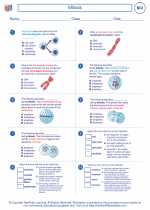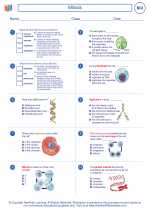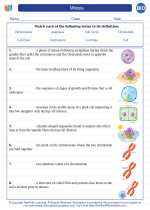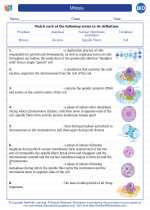Nuclear Reaction
A nuclear reaction is a process in which the nucleus of an atom is altered through the interaction of subatomic particles, such as protons, neutrons, and photons. These reactions can release or absorb a large amount of energy and are the fundamental processes that power the sun and other stars, as well as nuclear reactors.
Types of Nuclear Reactions
There are several types of nuclear reactions, including:
- Fission: In a fission reaction, the nucleus of an atom is split into two or more smaller nuclei, along with the release of a large amount of energy. This is the process used in nuclear power plants and atomic bombs.
- Fusion: Fusion reactions involve the merging of two or more atomic nuclei to form a single, heavier nucleus. This process powers the sun and other stars, and is a potential future energy source on Earth.
- Radioactive Decay: Radioactive decay is the spontaneous breakdown of an unstable atomic nucleus, resulting in the emission of radiation. This process is the basis of radiometric dating and is important in understanding the behavior of radioactive isotopes.
Key Concepts to Understand
When studying nuclear reactions, it's important to grasp the following concepts:
- Mass-Energy Equivalence: The mass of an atomic nucleus is not exactly equal to the sum of the masses of its individual protons and neutrons. This discrepancy is described by Einstein's famous equation, E=mc^2, where E is the energy equivalent of mass, m is the mass defect, and c is the speed of light.
- Binding Energy: The binding energy of a nucleus is the energy required to completely disassemble the nucleus into its individual protons and neutrons. It is a measure of the stability of the nucleus, with higher binding energies indicating greater stability.
- Half-Life: The half-life of a radioactive isotope is the time required for half of a sample of the isotope to decay. Understanding half-life is crucial for applications such as radiometric dating and the safe handling of radioactive materials.
Applications and Implications
Nuclear reactions have numerous practical applications and societal implications, including:
- Electricity Generation: Nuclear power plants utilize controlled nuclear fission reactions to generate electricity, providing a significant portion of the world's energy supply.
- Medical Isotopes: Radioactive isotopes produced by nuclear reactions are used in medical imaging, cancer treatments, and other medical applications.
- Nuclear Weapons: The understanding of nuclear reactions has led to the development of nuclear weapons, with profound implications for global security and geopolitics.
Study Tips
When studying nuclear reactions, consider the following tips:
- Understand the basic principles of atomic structure and isotopes, as these form the foundation for nuclear reactions.
- Practice solving problems involving nuclear decay and calculating half-lives of radioactive isotopes.
- Explore the history and development of nuclear reactions, including key discoveries and notable scientists in the field.
- Stay updated on current research and advancements in nuclear fusion as a potential future energy source.
◂Biology Worksheets and Study Guides High School. Mitosis
Worksheet/Answer key Mitosis
Mitosis  Worksheet/Answer key
Worksheet/Answer key Mitosis
Mitosis  Vocabulary/Answer key
Vocabulary/Answer key Mitosis
Mitosis  Vocabulary/Answer key
Vocabulary/Answer key Mitosis
Mitosis  Vocabulary/Answer key
Vocabulary/Answer key Mitosis
Mitosis 

 Worksheet/Answer key
Worksheet/Answer key
 Vocabulary/Answer key
Vocabulary/Answer key
 Vocabulary/Answer key
Vocabulary/Answer key
 Vocabulary/Answer key
Vocabulary/Answer key

The resources above cover the following skills:
Skills And Processes: The student will demonstrate ways of thinking and acting inherent in the practice of science. The student will use the language and instruments of science to collect, organize, interpret, calculate, and communicate information.
The student will use appropriate methods for communicating in writing and orally the processes and results of scientific investigation.
The student will describe similarities and differences when explaining concepts and/or principles.